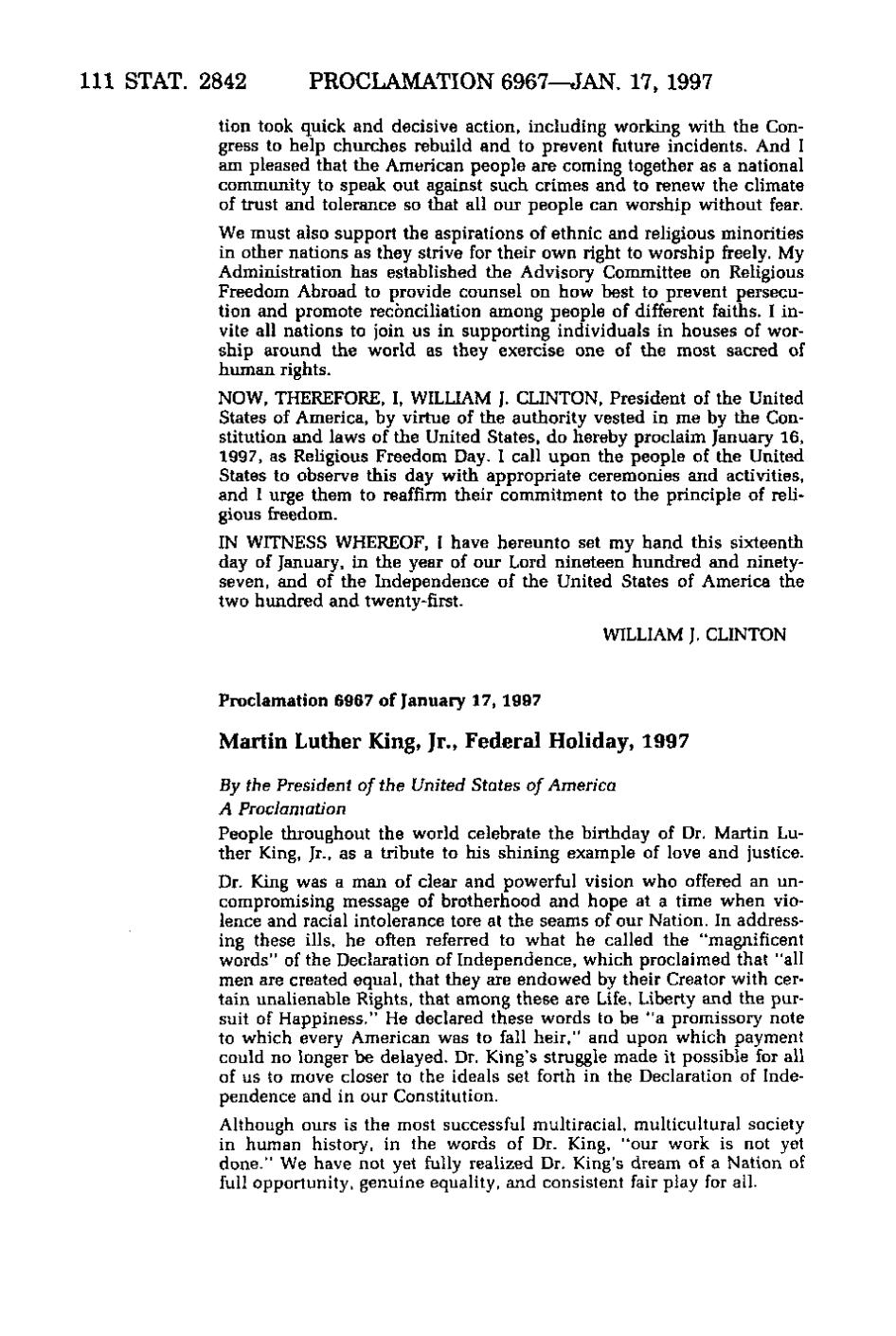Ill STAT. 2842 PROCLAMATION 6967—JAN. 17, 1997 tion took quick and decisive action, including working with the Congress to help churches rebuild and to prevent future incidents. And I am pleased that the American people are coming together as a national community to speak out against such crimes and to renew the climate of trust and tolerance so that all our people can worship without fear. We must also support the aspirations of ethnic and religious minorities in other nations as they strive for their own right to worship freely. My Administration has established the Advisory Committee on Religious Freedom Abroad to provide counsel on how best to prevent persecution and promote reconciliation among people of different faiths. I invite all nations to join us in supporting individuals in houses of worship around the world as they exercise one of the most sacred of human rights. NOW, THEREFORE, I, WILLIAM J. CLINTON, President of the United States of America, by virtue of the authority vested in me by the Constitution and laws of the United States, do hereby proclaim January 16, 1997, as Religious Freedom Day. I call upon the people of the United States to observe this day with appropriate ceremonies and activities, and I urge them to reaffirm their commitment to the principle of religious freedom. IN WITNESS WHEREOF, I have hereunto set my hand this sixteenth day of January, in the year of our Lord nineteen hundred and ninety- seven, and of the Independence of the United States of America the two hundred and twenty-first. WILLIAM J. CLINTON Proclamation 6967 of January 17, 1997 Martin Luther King, Jr., Federal Holiday, 1997 By the President of the United States of America A Proclamation People throughout the world celebrate the birthday of Dr. Martin Luther King, Jr., as a tribute to his shining example of love and justice. Dr. King was a man of clear and powerful vision who offered an uncompromising message of brotherhood and hope at a time when violence and racial intolerance tore at the seams of our Nation. In addressing these ills, he often referred to what he called the "magnificent words" of the Declaration of Independence, which proclaimed that "all men are created equal, that they are endowed by their Creator with certain unalienable Rights, that among these are Life, Liberty and the pursuit of Happiness." He declared these words to be "a promissory note to which every American was to fall heir," and upon which payment could no longer be delayed. Dr. King's struggle made it possible for all of us to move closer to the ideals set forth in the Declaration of Independence and in our Constitution. Although ours is the most successful multiracial, multicultural society in human history, in the words of Dr. King, "our work is not yet done." We have not yet fully realized Dr. King's dream of a Nation of full opportunity, genuine equality, and consistent fair play for all.
�
